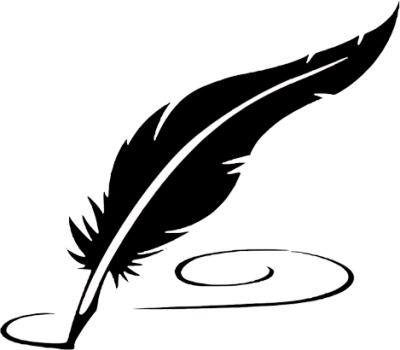Cultural Lives Matter
by Paula Peters
As Native Americans we endure regular acts of cultural degradation from children dressed up for Halloween in outfits that are a reflection of our traditional regalia to team mascots and sports fans wearing feathers and face paint mocking ancient spiritual rites and tradition. The concert of voices in opposition to these racist practices is growing but ignorance is stubborn and shame has a hard time penetrating fanatic sports enthusiasts.
That said, I honestly thought the undeniable scholarly evidence of atrocities committed by Christopher Columbus would more easily rectify the national holiday celebrated in his name. The primary source references to his crimes against humanity resulting in the genocide of millions of Arawak would earn him a special spot in hell right next to Hitler. In recent years a multi-racial movement to rename the holiday Indigenous Peoples’ Day has been embraced by numerous cities and colleges and universities across the country.
But this year at two Ivy League schools the reactions of some students one might expect to be among the best and the brightest this country has to offer quite honestly shocked me.
At Brown University in Providence, Rhode Island a non-Native student’s column in the Brown Daily Herald suggesting that Native people embrace Columbus Day not for the man but for the resulting “Columbian Exchange” the unfortunate designation for the transfer of plants, animals and cultural trade between continents not previously engaged in contact.
If the recommendation was meant to couch the impact of “the man’s” tyrannical reign of injustice it had just the opposite effect. Hundreds of students and supporters including members of local tribes attended a peaceful but vocal protest on the campus green. The student group, Native Americans at Brown, gathered more than 1000 signatures on a petition to rename the holiday next year. I hope they are successful.
A few hundred miles north at Dartmouth College in Hanover, New Hampshire Native Students staged a protest on the second Monday in October choosing to recognize Indigenous Peoples’ Day instead. What they endured from an anonymous and cowardly hate group was disgraceful.
Native students found the campus papered with flyers promoting an online marketing campaign to celebrate Indigenous Peoples’ Day by raising the ghost of the “Dartmouth Indian” logo on swag from T-shirts to thongs. The offensive Dartmouth Indian has been banned for more than 40 years.
This was far more than sophomoric prank. It does more than offend; it threatens and degrades Native students at Dartmouth who deserve to feel safe and respected. Just imagine how Dartmouth’s African American students would react to a black lawn jockey on the green. The anonymity and pervasiveness of the act left Native students feeling like burglary victims, violated and defenseless, like someone stepped into their hearts in the dark of night and took a piece of their pride to be exploited.
To knowingly dishonor these students suggests a deeper disregard for their heritage and perhaps a more open expression of what many Native students experience on a daily basis; resentment.
Do full-pay and legacy students begrudge the mission of the school established in 1769 to educate Native Americans? Can they actually be that blind to the social inequity that defines their generation?
In 1970 a new college president, John Kemeny, kicked open the doors of Dartmouth to Native students establishing an aggressive recruitment campaign to honor the school’s original charter that had been virtually ignored for 200 years. Since then Dartmouth counts more than 700 Native students among graduates, more than all other Ivy League schools combined. Decades before diversity initiatives became the norm and far ahead of the cultural sensitivity curve Kemeny also abandoned the unofficial Dartmouth Indian logo, the face of an angry and hostile looking Native man. While he was at it, Kemeny also spearheaded a change in the admissions policy to allow women to attend Dartmouth.
I hope Native American students stay strong in their convictions and endure. An ironic benefit of exposure to this elite brand of education is to bear witness to what can be the heartlessness of privilege and rise above it.
Many of Dartmouth’s graduates return to tribal communities and reservations where they become role models for the next generation and their education and experience help to build a bridge out of poverty.
 Paula Peters is an active member of the Mashpee Wampanoag Tribe based in Mashpee, Massachusetts and owner of SmokeSygnals, a media and communications consulting firm. She is currently producing a documentary on nine Mashpee Wampanoag men jailed in 1976 for drumming and singing their traditional music. The Mashpee Nine were later acquitted and law enforcement held accountable for their actions. Mashpee Nine: The Beat Goes On will premier at the 2016 Mashpee Wampanoag Powwow in July, commemorating the 40th anniversary of the raid on the men. An independent scholar of Wampanoag history Paula is also the Executive Producer of “Our”Story: 400 Years of Wampanoag Survival, a traveling multi-media exhibit telling the back story of the colonization of Plymouth from the indigenous perspective. A graduate of Bridgewater State College she was formerly a writer at the Cape Cod Times where she won numerous national awards for her journalism. She lives in Mashpee with her husband, two daughters and elder mother.
Paula Peters is an active member of the Mashpee Wampanoag Tribe based in Mashpee, Massachusetts and owner of SmokeSygnals, a media and communications consulting firm. She is currently producing a documentary on nine Mashpee Wampanoag men jailed in 1976 for drumming and singing their traditional music. The Mashpee Nine were later acquitted and law enforcement held accountable for their actions. Mashpee Nine: The Beat Goes On will premier at the 2016 Mashpee Wampanoag Powwow in July, commemorating the 40th anniversary of the raid on the men. An independent scholar of Wampanoag history Paula is also the Executive Producer of “Our”Story: 400 Years of Wampanoag Survival, a traveling multi-media exhibit telling the back story of the colonization of Plymouth from the indigenous perspective. A graduate of Bridgewater State College she was formerly a writer at the Cape Cod Times where she won numerous national awards for her journalism. She lives in Mashpee with her husband, two daughters and elder mother.
Link to Paula’s blog: http://slamsandwich.blogspot.com/
